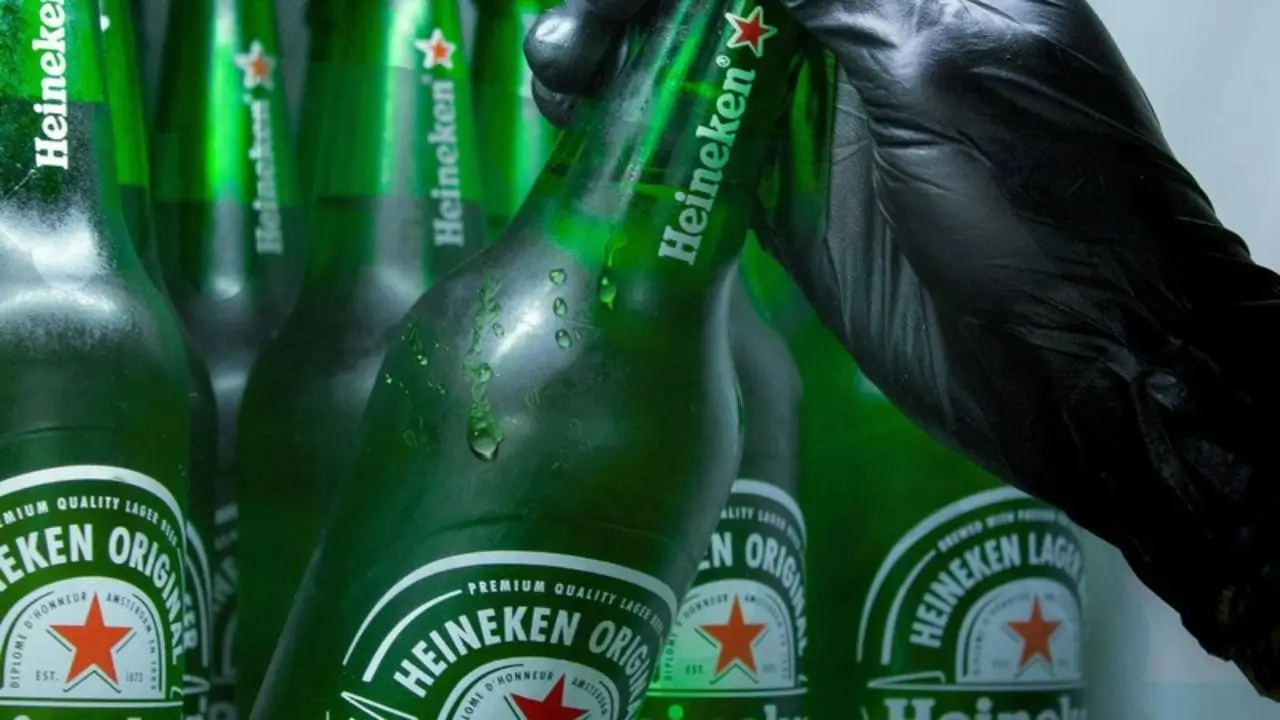A former brewery operator from Mpumalanga could lose his entire pension fund after his previous employer, Heineken South Africa, filed a R647,381 claim against him for alleged gross negligence. The Heineken lawsuit, now before the Johannesburg Labour Court, seeks to recover the cost of thousands of litres of beer that had to be discarded, placing the worker’s financial future in jeopardy.

Heineken vs Worker
| Key Fact | Detail / Statistic | Context |
| Claim Amount | R647,381.25 | Represents the value of 16,537 litres of beer Heineken claims was wasted. |
| Worker’s Pension | Approximately R400,000 | The entire pension fund is at risk as it is less than the total claim amount. |
| Allegation | Gross Negligence | Heineken alleges the worker failed to perform a critical step in the brewing process. |
| Legal Action | Civil Claim & Pension Attachment | The company seeks to attach the worker’s pension to settle the damages claim. |
Brewery Giant Pursues Former Employee for Damages
The legal action was initiated by Heineken South Africa, the Dutch brewing giant’s local subsidiary, against its former employee, Ndumiso Mbatha. According to court documents reported by GroundUp, the company is suing Mbatha for damages incurred at its Sedibeng Breweries facility in Vereeniging.
The claim stems from an incident in July 2022 where a significant batch of beer was ruined. Heineken alleges that Mbatha, who was responsible for a specific part of the brewing process, was grossly negligent in his duties. The company argues that this negligence directly led to a financial loss of over R647,000 and subsequently dismissed him following an internal disciplinary hearing. Having secured a default judgment against Mbatha, Heineken is now seeking a court order to attach his pension fund savings to cover the debt.
The Incident at Sedibeng Breweries
The core of the labour dispute revolves around the addition of a stabilising agent, Polyvinylpolypyrrolidone (PVPP), to a beer tank. Court papers state that Mbatha’s role was to ensure this agent was correctly added to the batch.
Heineken contends that Mbatha failed to perform this crucial step, rendering 16,537 litres of beer unsaleable. The company’s legal representatives argued that his actions, or lack thereof, constituted a serious dereliction of duty far exceeding simple error.
Conflicting Accounts and Worker’s Defence
However, Mbatha has contested this version of events. In his application to have the default judgment rescinded, he claimed he was not properly trained on a new system that had been implemented at the brewery. He further argued that he was not the only person responsible for the brewing process and that the company’s systems should have had failsafe mechanisms to prevent such a loss.

According to a report from IOL, Mbatha stated he was “not solely responsible” and that the “loss was a result of a system failure.” His legal team asserts that his conduct does not meet the legal definition of gross negligence, which implies a reckless disregard for one’s duties.
Legal Precedent and an Employee’s Pension
This case has drawn attention due to Heineken’s move to claim damages from an individual worker’s employee pension fund. While South African law permits employers to sue employees for losses caused by misconduct, attaching a pension fund is a more complex and contentious step.
The Pension Funds Act generally protects pension benefits from creditors. However, an exception allows for deductions if there is a judgment against the member for damages caused by “theft, dishonesty, fraud or misconduct.” The court must now determine whether Mbatha’s alleged negligence qualifies as the type of misconduct that would permit his pension to be seized. Labour law experts suggest that the outcome will set a significant precedent for employee accountability and the protection of retirement savings in South Africa.
The Food and Allied Workers’ Union (FAWU) has reportedly criticised the company’s actions, viewing them as an aggressive tactic against a blue-collar worker with limited resources.
The case was heard in the Johannesburg Labour Court, where Acting Judge Zama Ngcobo reserved judgment after hearing arguments from both sides. The ruling will determine whether the default judgment against Mbatha stands and if Heineken can proceed with its claim against his pension. The decision is awaited by labour unions and corporate employers alike, as it could clarify the boundaries of employee liability in the workplace.
South Africa New Fuel Prices in September 2025: Check New Changes & More Details
SASSA SRD Payout Hack: How to Withdraw Your Money at Pick n Pay Instantly
FAQs
1. Can a company in South Africa sue an employee for negligence?
Yes, under common law, an employer can sue an employee for financial losses resulting from the employee’s negligence or breach of contract. However, these cases often depend on proving the degree of negligence.
2. Is an employee’s pension fund protected from legal claims?
Generally, yes. The Pension Funds Act protects retirement savings from creditors. However, Section 37D of the Act provides an exception, allowing an employer to deduct from a member’s benefit in cases of a proven admission of liability or a court judgment for damages related to theft, fraud, dishonesty, or misconduct.
3. What is the current status of the Heineken lawsuit against Ndumiso Mbatha?
The Johannesburg Labour Court has heard the arguments regarding Mr. Mbatha’s application to rescind a default judgment obtained by Heineken. Acting Judge Zama Ngcobo has reserved judgment, and a ruling is expected at a later date.





